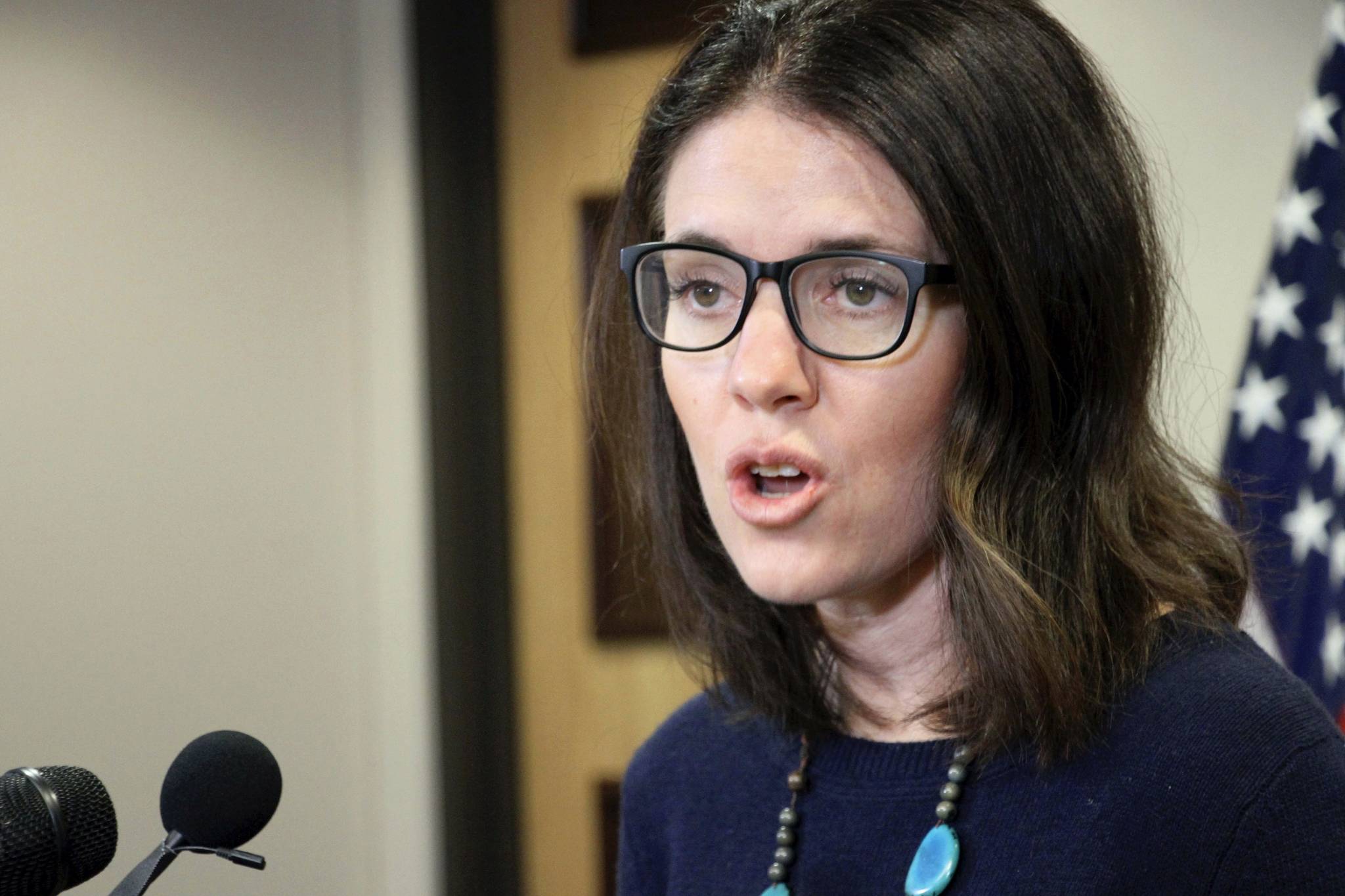Three additional cases of COVID-19 have been identified in Alaska, Chief Medical Officer Dr. Anne Zink said at a press conference Wednesday.
The three new cases bring the total reported cases in Alaska to nine.
Speaking in Anchorage, Zink said two cases were in Anchorage and one in the Seward area. All cases were “travel-related” she said, and the two Anchorage patients were older while the Seward case was a younger person in their 20s. Two of the patients had traveled to the Lower 48 and the other had recently traveled to Europe, Zink said.
The Seward case is the first confirmed case of the virus on the Kenai Peninsula.
Officials with the City of Seward, in conjunction with local health care representatives, also announced in a Wednesday press release that there has been one positive case of the virus from a person who had been traveling out of the country.
The person self-reported and self-isolated when mild symptoms appeared, according to the press release.
The State of Alaska Department of Health and Social Services is currently interviewing the person who tested positive and contacting anyone who may have had interactions with them.
Health care officials in Seward have said that they have “adequate resources” to address the new case and the current situation, but stressed the importance of calling ahead before seeing a health care provider.
“The importance of taking measures to ‘flatten the curve’ cannot be emphasized enough,” the press release stated. “This means that we all must do our part to help mitigate the spread of this virus so that our health care professionals are not overrun.”
The press release “strongly encourages” employers to allow any employee returning from out-of-state or international travel to stay home for 14 days while monitoring for symptoms. Anyone experiencing symptoms should immediately self-isolate at home and make arrangements with friends and family to assist with obtaining groceries or medicine as needed.
In the Anchorage press conference, Zink repeated advice to self-isolate if people are feeling ill and to be vigilant about washing hands and cleaning.
“This is a very important time in the state of Alaska,” Zink said, adding community actions could have a major impact on how quickly the virus was able to spread. “This could be the tipping point,” she said.
Though new cases are being reported, Zink said, any patient’s past travel will not be made public unless there is a public safety risk.
One of the state’s confirmed cases was Ketchikan Gateway Borough employee Glenn Brown. Brown identified himself and shared his experience on Facebook saying he wanted people to have accurate information from the source, “not based on conjecture and silly rumor.”
Brown said in the days leading to his diagnosis he had traveled to Oregon and Washington, which was where state health officials determined he contracted the virus. He wrote that Alaska Public Health staff did not believe his was a community-transmission case.
Zink said investigative staff at the Department of Health and Social Services would contact any “at-risk” people they believed had come into contact with someone diagnosed with the virus.
The state is trying to expand its testing capacity, Zink said, but at this point was focusing on testing only people who have shown symptoms of COVID-19 like fever and coughing and who had recently traveled. The state was pushing hard on the federal government to receive more supplies, she said.
“If I had all the tests in the world I’d be doing more testing,” Zink said. “We’re asking people to go to their health care providers and see if they have flu swabs. We have been told (by the federal government) we should expect more tests soon.”
Zink said the state had prepared for a viral outbreak just last year and plans were in place if the state’s health care systems were to become overrun.
“We are seeing playbooks from around the world,” Zink said. “We have a disaster preparedness plan. If we got to crisis standards of care that would be information that we would declare as a state.”

